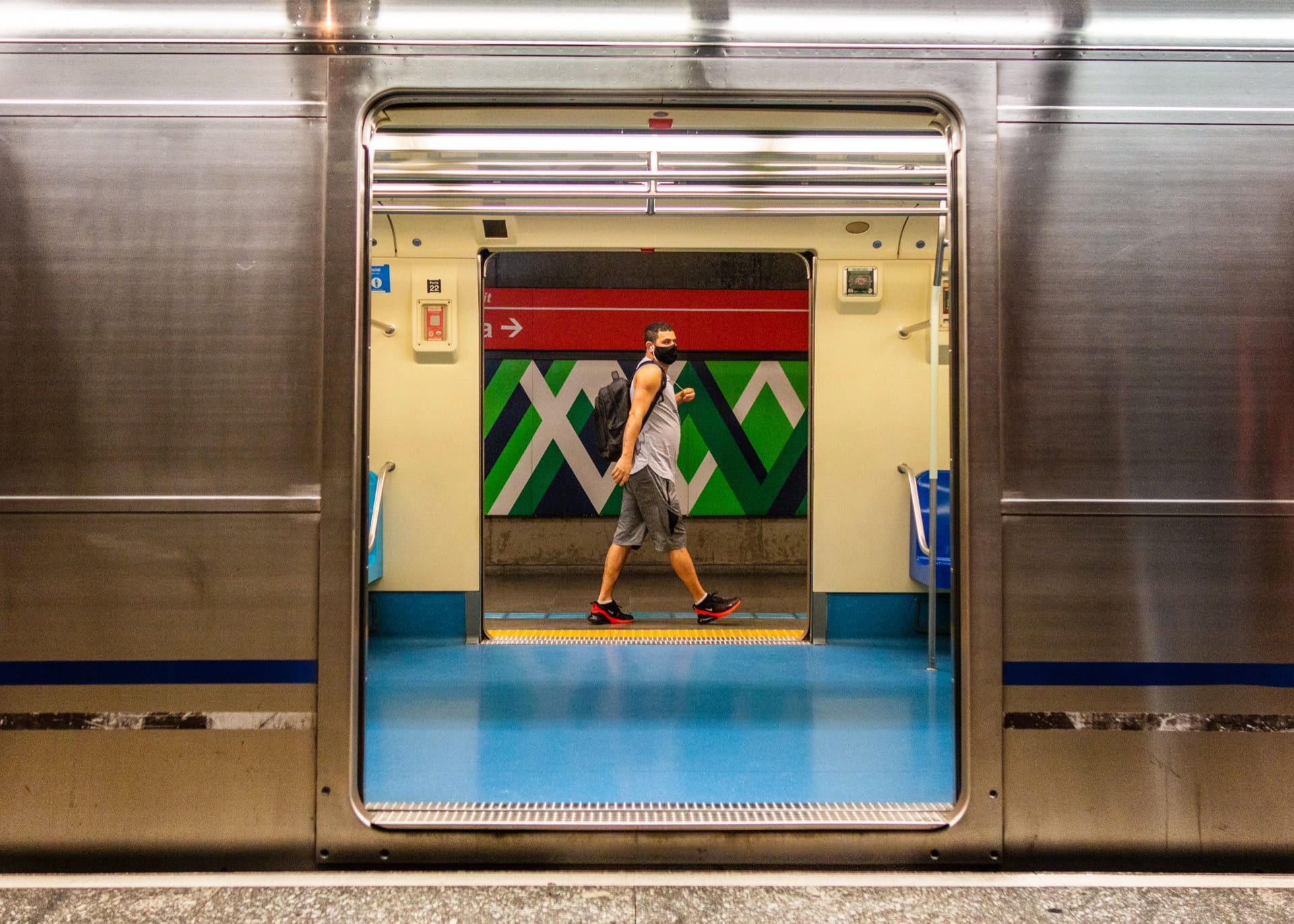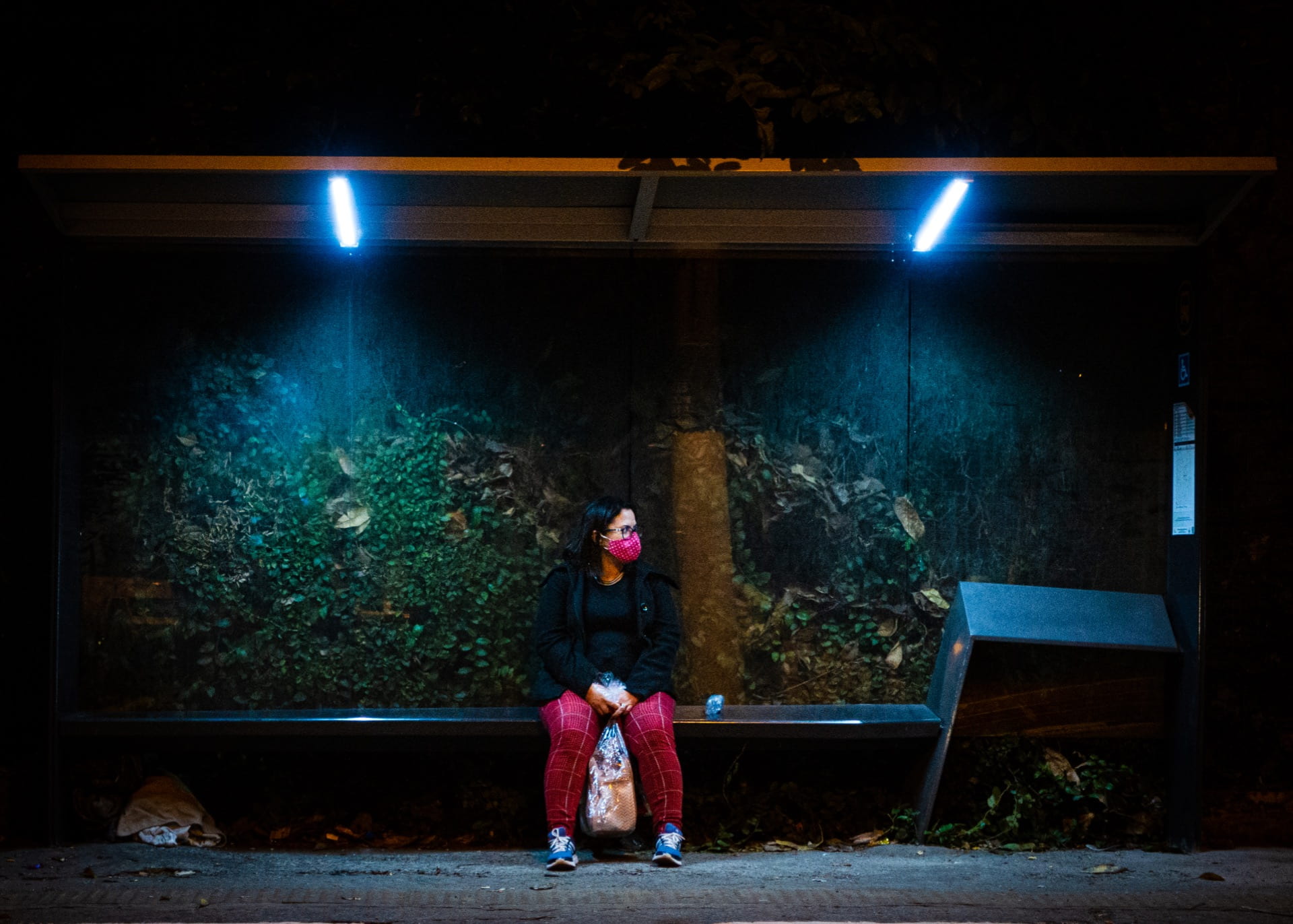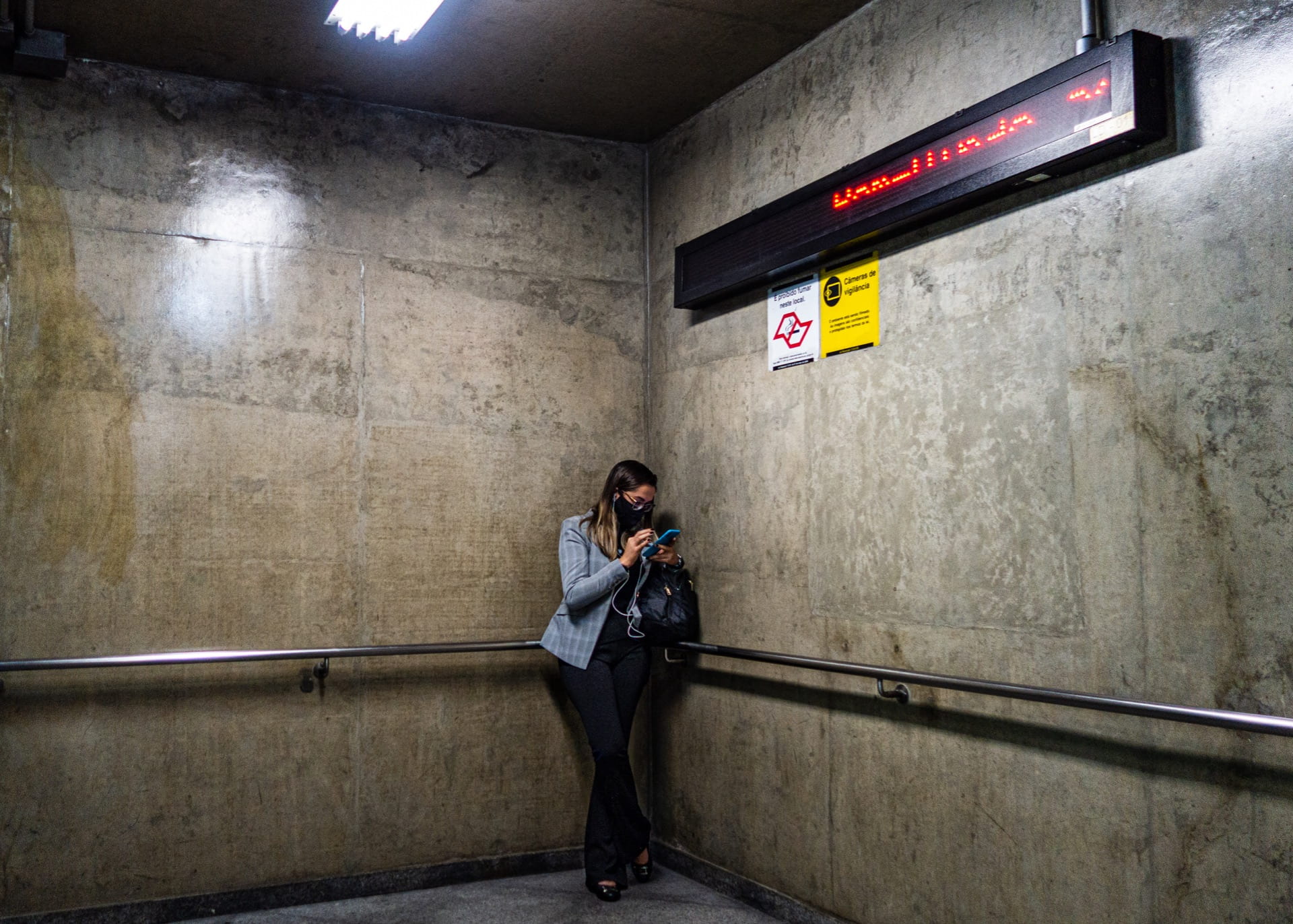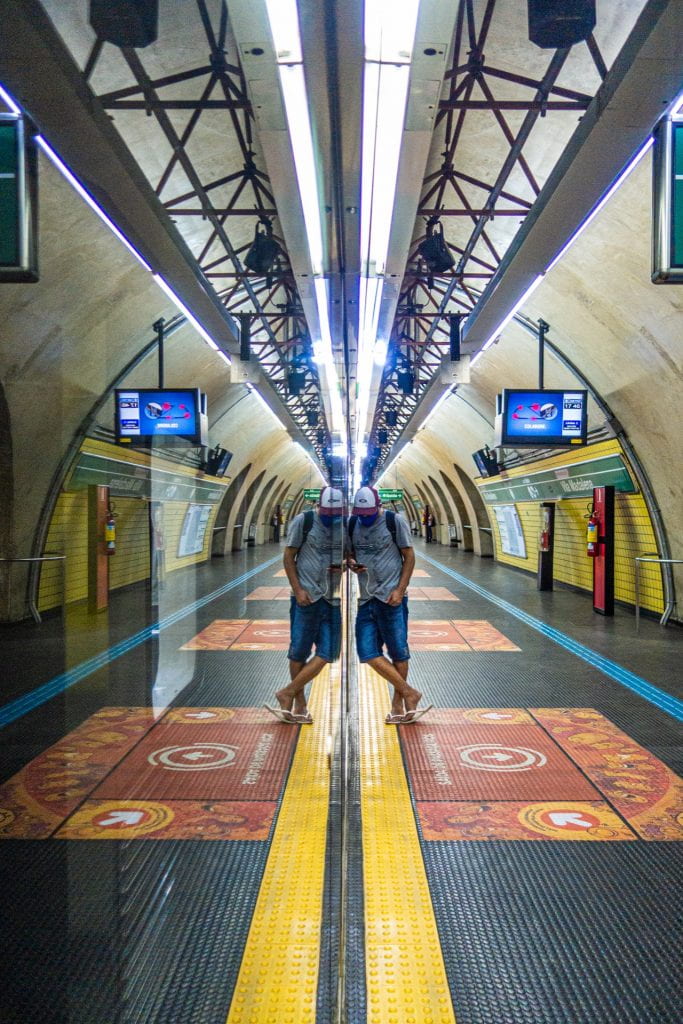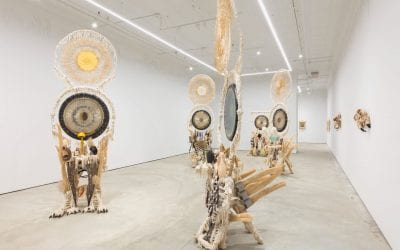The Covid-19 Crisis and Populism in Brazil
Photos by Apolo Sales
The images in this story are by Brazilian photographer Apolo Sales, whose photos are featured in the digital exhibiiton, “Documenting the Impact of Covid-19 through Photography: Collective Isolation in Latin America,” sponsored by ReVista and the Art, Culture, and Film program at Harvard’s David Rockefeller Center for Latin American Studies (DRCLAS.)
The exhibition, based on an Open Call for Photography launched in July 2020, aims to create a critical visual record of our unprecedented times so they can be remembered by future generations.
As a researcher in the history of the relationship between law and slavery, I’ve observed the impacts that biological events can have on the course of national policies. As historians like Sidney Chalhoub and Tana Hogarth have pointed out, yellow fever epidemics not only helped shape institutions, but also brought about profound changes in the geopolitics of the American continent during the revolutionary period. In the case of Brazil, the old Aedes aegypti could have played an important role in the process of ending the slave trade and in assembling racial ideologies in the 19th century. It remains to be seen just how far the impact of the coronavirus will play out, in what is already the greatest epidemic of the century.
U.S. President-elect Joe Biden’s defeat of Donald Trump at the polls offers a ray of hope for those of us worried about intensifying Western populism. The way Trump handled the Covid-19 pandemic, in the end, seem to have eroded his gains in popularity, paving the way for the Democrats to return to the White House. In Brazil, ruled by a self-declared Trump follower, many interpret this movement as the exhaustion of a rhetoric that has accumulated its victories in warmongering against the elites, the progressive sectors and the media. Yet, this rhetoric ultimately came up against something more difficult to attack: the virus, and its economic and social consequences. Brazilian optimism has continued to grow. In the municipal elections two weeks ago, President Jair Bolsonaro suffered a severe defeat, failing to elect a single supporter in the 27 Brazilian capitals.
Municipal elections take place right in the middle of a presidential term, and end up serving as a kind of reflection of the strength of that president’s administration to date. This would be comparable to the U.S. mid-term elections. Bolsonaro is a president unlike any other, who imploded his own party early in his term. This, in Brazil, is unheard of, as the country has more than 30 official political associations with national reach. In his political strategy, however, the president chose to support individual candidates spread across various parties of the extreme right or populist right. He lost in absolutely all of the capitals he disputed. Could this be a sign that the coronavirus crisis will also overcome populism in Brazil? Only time will tell.
Bolsonaro’s administration, in fact, has reason to feel bitter about the spread of the virus. Not only was the promise of an ultra-neoliberal government beginning to animate very traditional sectors of the market, economic indices were demonstrating to some progress. Despite seeming to be short-term results, the fact is that the conditions were minimally favorable to the president before the beginning of social isolation and restrictions on trade and circulation. According to the Brazilian statistical institute (IBGE), the unemployment rate had fallen from 11.7% of the economically active population in October 2018 (President Bolsonaro’s election month) to 11.2% in January 2020 (last data before the coronavirus pandemic). The primary deficit for 2019 had been around R $ 95 billion (“R” stands for reais, the Brazilian currency) compared to R $ 161 billion the previous year. The stock market had also risen by 43% over the course of the same period.
From the beginning of the coronavirus crisis to the present day, economic conditions have changed radically in Brazil. According to the IBGE, unemployment has increased from the figure previously mentioned of 11.2% to 14.6%—about 30%. Even within this rate, it is possible to see the migration of professionals forced to leave good positions due to the lure of informal, low-paid jobs. Workers with a formal contract (regular workers with all social security rights) decreased by 11.2% in relation to the end of 2019, a number much higher than those seen in informal workers. However, the bigger picture may actually be even worse. This is because the national occupancy rate was reduced from 54.4% of the active population to 47.1%, a number higher than the increase in unemployment mentioned above. The contingent outside the labor force increased by 21.2% in this period, and that of the potential labor force (people who could look for a job) increased by 61%.
The combination of these figures shows that many who are not employed are still not looking for a job, which would be justified by the existence of emergency aid programs during the pandemic period. These are programs that, of course, have their days numbered: in 2020, Brazil will carry the largest public account deficit in its history, projected to be at around R $ 900 billion, and its currency may have devalued by as much as 40% in this period.
Jair Bolsonaro has real reason to worry. On one hand his popularity still shows signs of resilience. However, the president has lost traditional sectors of his constituency (upper and middle classes), replacing it with new support from poorer members of society, whom are likely to be motivated by the income programs approved by the National Congress. With the end of this estimated aid scheduled in the coming weeks, and the explosion of unemployment to record levels, this cyclical gain in popularity is likely to disappear and a more realistic assessment of the situation will be made. For many, the overwhelming defeat in the municipal elections is already be an anticipation of this process.
In fact, there appears to be a relationship between the economic gains of the first half of the presidential term and the electoral results of the municipal elections. More economically successful presidents were able to maintain more structured bases in large Brazilian cities, which would ultimately lead to further support for their re-election. However, this support does not always work as clearly and obviously as one might imagine.
Only three presidents have ever been re-elected in the history of Brazil. Fernando Henrique Cardoso, elected in 1994 and re-elected in 1998; Luiz Inácio Lula da Silva, elected and re-elected in the 2002 and 2006 elections; and Dilma Rousseff, elected in the 2010 and 2014 elections. An analysis of the economic indices of the first two years of their governments, and the eventual reflection in the first municipal elections of their mandates, can offer up interesting clues regarding the extent of the damage that the impact of the coronavirus could potentially cause for President Bolsonaro.
Fernando Henrique Cardoso was elected in 1994, and his first two years were not exactly encouraging to the national income. Although in the period, GDP per capita grew a little—from 8.42 thousand reais a year to 8.71—unemployment increased from 5.1% to 5.4%. His party (PSDB), which had ruled five capitals in 1992, was reduced to four in the 1996 election. Although the vice president’s party (PFL), important in his government’s political coalition, won three of the six largest Brazilian capitals, his party won none of these central elections (in Brazil, the president and vice-president do not necessarily belong to the same party).
Lula was more successful in delivering short-term gains during his term, between the beginning of his administration and the first municipal election. He managed to reduce unemployment from 12.9% to 10.7% and the GDP per capita increased from 8.81 thousand reais a year to 9.22. Voters responded accordingly. His party (PT), which governed six capitals in 2000, started to govern nine in 2004, an increase of 50%. Among the six largest capitals, he won two elections with his own party candidacy, and supported the winning candidate of another party in one more election.
Dilma Rousseff, the last re-elected president, like her predecessor and supporter Lula, showed short-term gains in regard to the income of Brazilians. In the first two years of her term, she reduced unemployment from 7.2% to an impressive 4.9% and raised GDP per capita from 11.07 thousand reais a year to 11.27. Although she did not have an easy time in the municipal elections, it is possible to understand that her economic results were reflected at the polls. Although she won only five capital cities—reducing PT’s administration from six to five cities—, the Workers’ Party won, directly or indirectly, the two most significant cities in the country, São Paulo and Rio de Janeiro.
All the presidents mentioned above were re-elected. This shows us that, although the economic results of the beginning of the term seem to directly impact their first municipal elections, it is important to consider the weight that the elections in the cities will have on the subsequent presidential campaign two years later. Fernando Henrique, without significantly impressive results in the election of the municipalities in 1996, was re-elected in the first round (with 53.06% of the votes) in 1998. Lula and Dilma, with more notable victories in the elections of the cities in the beginning of their terms, had more difficult and tighter re-elections.
What does this tell us? Firstly, it is reasonable to imagine that the economic consequences already felt by the coronavirus crisis impacted on the absolute failure of Bolsonaro’s political efforts in the recent elections. It is also reasonable to imagine that the polls are already reflecting the decrease in the quality of life felt by many Brazilians, who are concerned about employment and income. The analysis of the municipal elections of the re-elected presidents could indicate that this election may have little importance for President Bolsonaro’s re-election bid in two years. However, it is worth noting that even in cases where the presidents’ parties have lost power, they have always managed to maintain a network of supporters in large Brazilian cities (whether by directly governed city halls or by political allies). Bolsonaro’s situation, therefore, goes beyond the relative decrease of power in the cities. Today, he seems to have very few supporters among the mayors who will rule the capitals from January next year.
Of course, the coronavirus crisis does not simply have economic consequences. The population will assess the general conduct of government officials, the effectiveness of their policies in combating the spread of the virus, in treating patients and in conducting vaccine manufacture and distribution. The economic stituation, as we know, is overwhelming. Attacking globalism, progressivism and economic elites can become more difficult in a country where people are unemployed, craving income and work. The coronavirus does not seem to have overcome populism in Brazil. But it has certainly opened up a path for political agents to do so.
A crise do Covid-19 e o Populismo no Brasil
Por Paulo Henrique Rodrigues Pereira
Fotos: Apolo Sales, Brasil, “Collective Isolation in Latin America, Documenting the Impact of Covid-19 through Photography”
Como pesquisador da história das relações entre direito e escravidão, sei que eventos biológicos podem ter impacto no percurso das instituições políticas nacionais. Como historiadores como Sidney Chalhoub e Tana Hogarth tem demonstrado, as epidemias de febre amarela ajudaram a formatar instituições e provocaram profundas mudanças na geopolítica do continente americano no período revolucionário. No caso do Brasil, o velho Aedes aegypti pode ter desempenhado um papel importante nos processos de fim do tráfico de escravizados e de montagem das ideologias raciais do século XIX. Resta entender até onde irá a capacidade de impacto do coronavírus, que já é a maior epidemia do século.
A vitória de Joe Biden sobre Donaldo Trump, nas recentes eleições presidenciais, oferece um raio de esperança para aqueles preocupados com a intensificação do populismo ocidental. A forma com a qual Trump lidou com a pandemia de Covid-19, no final das contas, parece ter anulado seu ganho de popularidade, abrindo caminho para a volta dos democratas à Casa Branca. No Brasil, governado por um auto declarado seguidor de Trump, muitos leram esse movimento como uma demonstração de esgotamento de uma retórica que havia acumulado vitorias no seu belicismo contra as elites, os setores progressistas, a mídia, mas que parecia encontrar finalmente um adversário mais difícil de atacar: o vírus, e suas consequências econômicas e sociais. O otimismo no Brasil continuou crescendo. Nas eleições municipais ocorridas há duas semanas, o Presidente Jair Bolsonaro sofreu uma dura derrota, não conseguindo eleger nenhum apoiador nas 27 capitais brasileiras.
As eleições municipais acontecem exatamente no meio do mandato presidencial, e acabam servindo como uma espécie de avaliação da força da administração do presidente até ali. Um pouco como as eleições de meio de mandato (mid-terms) nos Estados Unidos. Bolsonaro, que implodiu o seu partido logo no começo do seu mandato, é um presidente sem legenda. Isso no Brasil é praticamente impossível na medida em que o pais conta com mais de 30 agremiações politicas oficiais, com alcance nacional. Na sua estratégica política, entretanto, o presidente optou por apoiar candidatos individuais, espalhados por vários partidos da extrema direita ou da direita populista. Perdeu em absolutamente todas as capitais que disputou. Seria esse um sinal de que o crise do coronavírus também vai vencer o populismo no Brasil? Apenas o tempo pode dizer.
A administração de Bolsonaro, de fato, tem motivos para se queixar do vírus. A promessa de um governo ultra neo-liberal começava a animar setores muito tradicionais do mercado, e já era possível se verificar algum avanço em índices econômicos. Ainda que parecessem ser resultados de curto prazo, o fato é que as condições se mostravam minimamente favoráveis ao presidente no momento anterior ao começo dos isolamentos sociais e restrições ao comercio e circulação. Segundo o IBGE – instituto brasileiro de estatística – a taxa de desocupação (desempregados) havia caído de 11,7% da população economicamente ativa em outubro de 2018 (mês da eleição do Presidente) para 11,2% em janeiro de 2020 (último dado antes da pandemia do coronavírus). O déficit primário para o ano de 2019 havia sido de cerca de R$ 95 bilhões de reais frente a R$ 161 bilhões do ano anterior. O mercado de ações chegou a se valorizar 43% nesse mesmo período.
Da crise do coronavírus para cá, as condições econômicas mudaram radicalmente no Brasil. De acordo com o IBGE, o desemprego cresceu dos 11,2% mencionados para 14,6%, um aumento de cerca de 30%. Mesmo dentro dessa taxa de ocupação, é possível perceber migração de profissionais que foram obrigados a largar empregos melhores por trabalhos informais de baixa remuneração. Os trabalhadores com carteira assinada (trabalhadores regulares com todos os direitos de seguridade social) diminuíram em 11,2% em relação ao final de 2019, número muito maior do que os verificados nos trabalhadores informais. Entretanto, o quadro pode ser ainda pior. Isso porque a taxa de ocupação nacional foi reduzida de 54,4% da população ativa para 47,1%, número maior ao do aumento de desempregados mencionados acima. O contingente fora da força de trabalho aumento 21,2% no período, e o de força de trabalho potencial (pessoas que poderiam procurar emprego) aumentou 61%.
A combinação desses números mostra que muitos não ocupados ainda não estão procurando emprego, o que se justificaria pela existência de programas de auxilio emergencial no período da pandemia. Programas que, naturalmente, tem seus dias contados: o Brasil carrega em 2020 o maior déficit das contas públicas da sua história, projetado em cerca de R$ 900 bilhões, e sua moeda chegou a se desvalorizar 40% no período.
Jair Bolsonaro tem mesmo motivos para se preocupar. De um lado, sua popularidade ainda mostra alguma resiliência. Entretanto, o presidente perdeu setores tradicionais de seu eleitorado (classes altas e médias) e tem recebido apoio das camadas mais pobres da sociedade, provavelmente motivadas pelos programas de renda aprovados pelo Congresso Nacional. Com o fim do auxílio estimado para as próximas semanas, e a explosão do desemprego para índices recordes, esse ganho conjuntural de popularidade deve se esvair, e se terá uma avaliação mais realista da situação. Para muitos, a acachapante derrota nas eleições municipais já demonstra uma antecipação desse processo.
De fato, parece haver uma relação entre os ganhos econômicos da primeira metade dos mandatos presidenciais e os resultados eleitorais das eleições municipais. Presidentes mais bem-sucedidos economicamente puderam manter bases mais estruturadas nas grandes cidades brasileiras, o que poderia significar mais apoio para a sua reeleição. Entretanto, esse apoio nem sempre funciona de forma clara e obvia como se imaginaria.
Apenas três presidentes foram reeleitos na história do Brasil. Fernando Henrique Cardoso, eleito em 1994 e reeleito em 1998; Luiz Ignácio Lula da Silva, eleito e reeleito nas eleições de 2002 e 2006; e Dilma Rousseff, eleita nos pleitos de 2010 e 2014. Uma análise sobre os índices econômicos dos primeiros dois anos de seus governos, e o eventual reflexo nas primeiras eleições municipais dos seus mandatos pode nos dar pistas interessantes sobre o tamanho do dano que a crise do coronavírus pode causar ao presidente Bolsonaro.
Fernando Henrique Cardoso foi eleito em 1994, e seus dois primeiros anos não foram exatamente alentadores para a renda nacional. Embora no período, o PIB per capta tenha crescido um pouco– de 8,42 mil reais anuais para 8,71 – o desemprego aumentou, saindo de 5,1% para 5,4%. Seu partido (PSDB) que tinha governava cinco capitais no ano de 1992, sofreu redução para quatro na eleição de 1996. Embora o partido do seu vice-presidente (PFL), importante na coalizão política do seu governo, tenha vencido três das seis maiores capitais brasileiras, o seu partido não venceu nenhum desses pleitos (No Brasil, o presidente e o vice-presidente não são necessariamente do mesmo partido.
Lula foi mais bem sucedido nas entregas do curto prazo mediado entre sua eleição e o primeiro pleito municipal do seu mandato. Conseguiu reduzir o desemprego de 12,9% para 10,7% e o Pib per capta avançou de 8,81 mil reais anuais para 9,22. Os eleitores responderam. Seu partido (PT), que governava seis capitais em 2000, passou a governar nove em 2004, um aumento de 50%. Entre as seis maiores capitais, venceu dois pleitos com candidatura própria, e apoiou o candidato vencedor de outro partido em mais um pleito.
Dilma Rousseff, a última presidente reeleita, assim como seu antecessor e correligionário Lula, também apresentou ganhos de curto prazo para a renda dos brasileiros. Nos primeiros dois anos de seu mandato reduziu o desemprego de 7,2% a impressionantes 4,9% e elevou o PIB per capta de 11,07 mil reais ao ano para 11,27. Embora não tenha tido vida fácil nas eleições municipais, é possível entender que seus resultados econômicos foram sentidos nas urnas. Embora tenha perdido uma prefeitura de capital, vencendo apenas cinco, o Partidos dos Trabalhadores venceu, direta ou indiretamente, as duas mais importantes cidades do País. Elegeu o prefeito da cidade de São Paulo e compôs a posição de vice na chapa do vitorioso na cidade do Rio de Janeiro.
Todos os presidentes mencionados acima forma reeleitos. Isso nos mostra que embora os resultados econômicos do começo de mandato pareçam impactar diretamente as suas primeiras eleições municipais, é importante ponderar o peso que os pleitos nas cidades terão na campanha presidencial que ocorrerá dois anos depois. Fernando Henrique com resultados pouco expressivos na eleição dos municípios em 1996, foi reeleito em primeiro turno com 53,06% dos votos em 1998. Lula e Dilma, com vitorias mais impressionantes nos pleitos das cidades no seu começo de mandato, tiveram reeleições mais difíceis e apertadas.
O que isso nos diz? Em primeiro lugar, é razoável imaginar que as consequências econômicas já sentidas pela crise do coronavírus impactaram o absoluto fracasso dos esforços políticos de Bolsonaro nas eleições ocorridas nas últimas semanas. É razoável imaginar que as urnas já estejam refletindo alguma deterioração da vida real do brasileiro, preocupado com emprego e renda. A análise das eleições municipais dos presidentes que se reelegeram poderia indicar que essa eleição pode ter pouca importância para a disputa que o presidente Bolsonaro enfrentará em 02 anos. Entretanto, vale reparar que mesmo em casos em que os partidos dos presidentes perderam poder, eles sempre conseguiram manter uma rede de apoiadores nas grandes cidades brasileiras, seja por prefeituras governadas diretamente, seja por aliados políticos. A situação de Bolsonaro, dessa forma, vai além da diminuição relativa de poder nas cidades. Hoje, ele parece não ter pouquíssimos apoiadores entre os prefeitos que governarão as capitais a partir janeiro do ano que vem.
Evidentemente, a crise do coronavírus não traz consequências apenas econômicas. A população avaliará a condução geral dos governantes, a eficiência das suas políticas no combate ao contagio, no tratamento aos doentes, na condução dos processos de produção e distribuição da vacina. A situação econômia, como sabemos, é insofismável. Atacar o globalismo, o progressismo e as elites econômicas pode ficar mais difícil em um pais em que as pessoas estejam desempregadas, sedentas por renda e trabalho. O coronavírus não parece ter vencido o populismo no Brasil. Mas, seguramente, abriu um belo caminho para que os agentes políticos possam fazê-lo.
Paulo Henrique Rodrigues Pereira is a Ph.D. candidate at the University of São Paulo (Law School), Brazil and 2020-2021 Visiting Researcher at Harvard FAS and ALARI Visiting Fellow. He is a Mark Claster Mamolen Dissertation Workshop Alumnus 2020.
Paulo Henrique Rodrigues Pereira é doutorando pela Faculdade de Direito da Universidade de São Paulo, Brasil, e pesquisador visitante da Faculty of Arts and Sciences de Harvard e do Afro-Latin American Research Institute também de Harvard. É aluno 2020 do Mark Claster Mamolen Dissertation Workshop.
Related Articles
Brazil’s Vaccinated Democracy
In March 2021, former Brazilian president Luiz Inácio Lula da Silva, a current presidential candidate, posed a pointed question in a speech lambasting President Jair Bolsonaro’s Covid-19 response. “Where is our beloved Zé Gotinha?” Zé Gotinha is not a respected public health expert or crisis manager
Broken Land: Climate Change and Migration in Guatemala
Broken LandClimate Change and Migration in Guatemala Santos Istazuy Pérez (right) sits in meditation during a group hike and workshop at a lush farm along with fellow Guatemalans and like-minded people from around the world including Germany and Uruguay. Photo by...
The Gift of Art
My dear friend, Colombian pioneer performance artist, Maria Evelia Marmolejo, (Cali, Colombia, 1958) whom I met during the research for the exhibition Radical Women: Latin…

